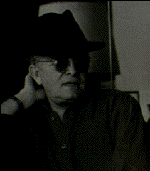
|
Truman Capote (1924-1984) |

|
Truman Capote (1924-1984) |
|
|
I truthfully feel none of us have anyone to blame for whatever we have done with our own personal lives. It has been proven that at the age of 7 most of us have reached the age of reason -- which means we do, at this age, understand & know the difference between right & wrong. Of course -- environment plays an awfully important part in our lives such as the Convent in mine & in my case I am grateful for that influence. In Jimmy's case -- he was the strongest of us all. I remember how he worked & went to school when there was no one to tell him & it was his own WILL to make something of himself. We will never know the reasons for what eventually happened, why he did what he did, but I still hurt thinking of it. It was such a waste. But we have very little control over our human weaknesses, & this applies also to Fern & hundreds of thousands of other people including ourselves -- for we all have weaknesses. In your case -- I don't know what your weakness is but I do feel -- IT IS NO SHAME TO HAVE A DIRTY FACE -- THE SHAME COMES WHEN YOU KEEP IT DIRTY. --from In Cold Blood
Capote Links |
